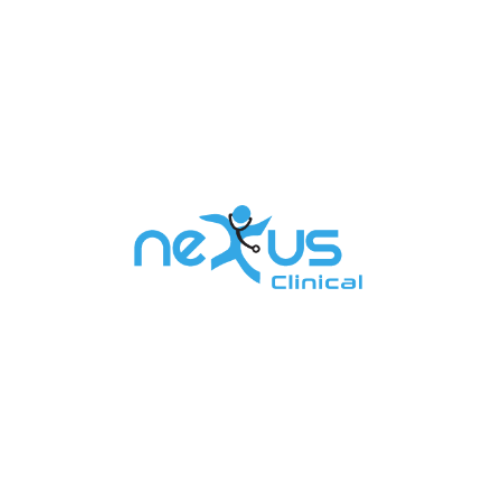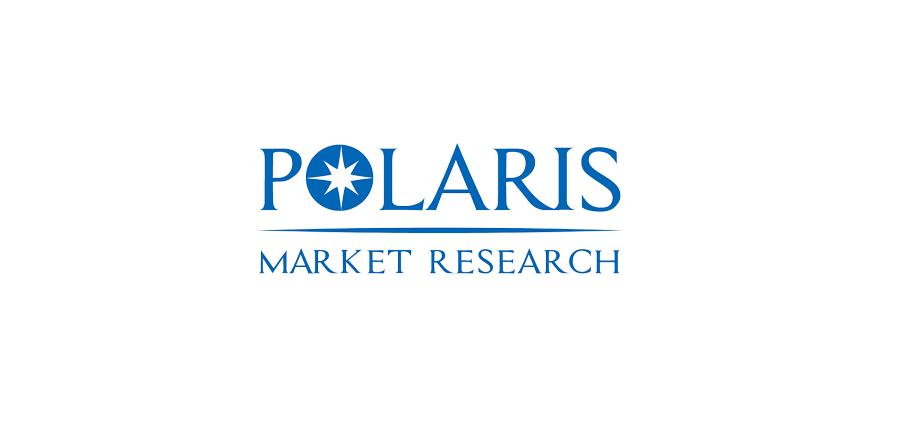How Medical Billing Software Ensures Regulatory Compliance?

Regulatory compliance has become a cornerstone of successful healthcare management. Clinics, hospitals, and private practices must navigate strict rules surrounding patient data protection, accurate coding, and ethical billing. Implementing an efficient Medical Billing Software Solution plays a crucial role in ensuring adherence to these standards. It not only simplifies claim submissions but also supports healthcare providers in meeting all legal and administrative obligations with confidence.
The Critical Role of Compliance in Healthcare
Healthcare compliance isn’t just about following rules—it protects patients, prevents fraud, and maintains the integrity of the medical system. Every transaction involving patient data must comply with laws like HIPAA (Health Insurance Portability and Accountability Act), CMS (Centers for Medicare and Medicaid Services) guidelines, and the HITECH Act. Violations can lead to costly penalties, lawsuits, and reputational damage.
Medical billing systems are designed with these requirements at their core. They automate, record, and audit every process, reducing the chance of human error that can lead to non-compliance.
Adherence to HIPAA Regulations
HIPAA governs how healthcare data is stored, transmitted, and accessed. Non-compliance can result in severe fines and loss of trust. Medical billing software helps healthcare organizations align with HIPAA by:
-
Encrypting patient data: Ensuring that sensitive information is securely transmitted and stored.
-
Access control management: Only authorized users can view or edit patient data.
-
Automatic audit trails: Every access or modification to patient records is logged, making it easier to monitor activity.
-
Secure electronic claim submission: Protects patient information throughout the billing process.
By embedding these compliance features, the system ensures every data interaction is traceable, secure, and within legal boundaries.
Ensuring Accuracy in Medical Coding
Medical billing relies on standardized codes—ICD-10, CPT, and HCPCS—to describe diagnoses and procedures. Inaccurate coding can result in claim denials, audits, and compliance issues. Medical billing software integrates built-in code validation tools that:
-
Cross-check entries against the latest coding databases.
-
Alert users to inconsistencies or missing data.
-
Automatically update to reflect new code changes or revisions.
By minimizing manual input errors and keeping codes current, the system ensures that all billing activities adhere to coding regulations and payer requirements.
Compliance with CMS and Payer Rules
The Centers for Medicare and Medicaid Services regularly updates its reimbursement policies and documentation standards. Manual tracking of these changes is nearly impossible, especially for large practices. Medical billing software automatically incorporates new CMS updates and payer rule modifications, such as:
-
Correct billing formats and claim submission standards.
-
Accurate use of modifiers and service codes.
-
Automated eligibility verification before claim submission.
-
Integrated payer-specific rules to prevent rejections.
This automation ensures that claims are always compliant before submission, reducing rework and maintaining consistent adherence to healthcare regulations.
Safeguarding Patient Data Privacy and Security
Patient confidentiality is fundamental to healthcare compliance. Medical billing systems prioritize privacy through advanced security layers. These include:
-
End-to-end encryption for all transmitted data.
-
Role-based permissions that limit access based on job responsibilities.
-
Automatic logout and timeout features to prevent unauthorized access.
-
Regular security patches that address emerging threats.
Such measures protect data integrity while aligning with federal privacy standards. They also build patient confidence in the provider’s commitment to data security.
Preventing Fraud and Abuse
Regulatory compliance extends to preventing fraudulent billing practices. Whether intentional or not, improper claims can trigger legal scrutiny and penalties. Medical billing systems provide safeguards such as:
-
Real-time claim validation to identify duplicate submissions or inaccurate entries.
-
AI-assisted auditing tools that flag unusual billing patterns.
-
Built-in compliance reports that document financial activities for review.
These controls help organizations maintain transparency, detect anomalies early, and ensure that billing operations meet ethical and legal expectations.
Facilitating Regular Audits
Audits are essential for verifying compliance with healthcare regulations. However, manual auditing consumes time and resources. Medical billing software simplifies this process by maintaining digital records of all billing activities. Key advantages include:
-
Instant retrieval of transaction histories for specific claims.
-
Comprehensive audit trails tracking every modification.
-
Configurable reporting dashboards that summarize compliance data.
-
Automatic alerts for missed or pending documentation.
This structured documentation makes internal and external audits smoother, faster, and more reliable.
Reducing Human Error Through Automation
Human mistakes—whether due to fatigue, oversight, or complex data entry—pose a major compliance risk. Automated billing software significantly minimizes these errors through:
-
Auto-populated fields using verified patient data.
-
Built-in error detection algorithms.
-
Consistent data synchronization across departments.
-
Template-based claim generation for uniformity.
Reducing manual input ensures accuracy and compliance across every step of the billing process.
Alignment with the HITECH Act
The HITECH Act emphasizes the secure adoption of electronic health records (EHR) and the safeguarding of patient information. Medical billing software supports compliance by integrating seamlessly with EHR systems. This alignment ensures that:
-
Billing data flows securely between EHR and billing platforms.
-
Patient information is not duplicated or exposed.
-
All digital interactions remain compliant with national interoperability standards.
Such integration reduces administrative burdens while maintaining full transparency and control over sensitive data.
Comprehensive Reporting for Compliance Management
Effective compliance management depends on visibility and accountability. Medical billing systems offer customizable reporting functions that allow administrators to track performance, compliance rates, and potential issues.
Examples of vital compliance reports include:
-
Claim rejection and denial summaries.
-
HIPAA security access logs.
-
Coding accuracy reports.
-
Payer policy adherence metrics.
These reports empower healthcare administrators to make informed decisions, identify risk areas, and implement corrective measures promptly.
Staff Training and Compliance Support
Even the best software is only as effective as the people using it. Many platforms include built-in compliance training modules or notifications that guide staff on policy updates, coding revisions, and documentation standards. These features help:
-
Keep billing teams informed about the latest regulatory changes.
-
Reinforce proper coding and submission practices.
-
Minimize compliance-related mistakes through ongoing reminders.
An informed staff combined with reliable software creates a strong compliance culture within the organization.
Integration with Practice Management and EHR Systems
Regulatory compliance often depends on data consistency across all platforms. Integration between billing, scheduling, and EHR systems ensures seamless communication and minimizes discrepancies. Benefits include:
-
Elimination of data silos that can lead to compliance gaps.
-
Streamlined claims that use consistent patient and treatment data.
-
Unified documentation for insurance and regulatory audits.
By creating a single source of truth for patient and billing data, integrated systems maintain compliance integrity across every touchpoint.
Maintaining Up-to-Date Regulatory Databases
Healthcare laws and payer policies evolve constantly. Keeping up with these changes is vital. Modern billing software automatically updates its regulatory databases to reflect:
-
Changes in coding standards (ICD, CPT, HCPCS).
-
Payer-specific documentation updates.
-
New CMS reimbursement rules.
-
State and federal policy changes.
This continuous updating ensures that every billing action aligns with current compliance requirements.
Role-Based User Authentication
Medical billing software includes layered security structures that align with compliance protocols. Role-based authentication ensures that each user accesses only what their role requires. This approach:
-
Prevents unauthorized access to sensitive financial or medical data.
-
Tracks every user’s activity for accountability.
-
Enhances audit transparency.
Such structured access management supports both HIPAA and organizational data governance standards.
Secure Cloud-Based Storage
Storing data in secure, compliant cloud environments has become a standard practice for healthcare institutions. Cloud-based billing platforms offer several compliance advantages:
-
Encrypted data backups to prevent data loss.
-
Geographic redundancy ensures recovery in case of system failures.
-
Continuous security monitoring by certified data centers.
-
Easy scalability without compromising compliance.
These features combine operational efficiency with regulatory reliability.
Future-Proofing Compliance
Healthcare regulations will continue to evolve with technological advances and privacy expectations. Medical billing software is designed with scalability and flexibility to adapt to new compliance standards. Features such as AI-driven compliance checks, predictive analytics, and real-time monitoring ensure that healthcare providers can remain compliant even as regulations change.
Key Benefits of Compliance-Driven Medical Billing Software
-
Minimizes claim denials and rejections.
-
Enhances patient data protection.
-
Reduces administrative costs associated with manual compliance tracking.
-
Builds trust with payers and patients alike.
-
Protects organizations from legal penalties and audits.
When compliance is built into the system, healthcare providers can focus on delivering better patient care instead of worrying about regulatory risks.
Conclusion
Maintaining regulatory compliance is a continuous responsibility for every healthcare provider. A well-structured medical billing system transforms this challenge into an efficient, secure, and transparent process. By automating data management, enforcing coding accuracy, integrating with EHR systems, and staying current with regulations, these platforms uphold legal and ethical standards effortlessly.
Ultimately, the right medical billing software not only safeguards a healthcare organization from compliance risks but also enhances the reliability and reputation of the care it provides.






